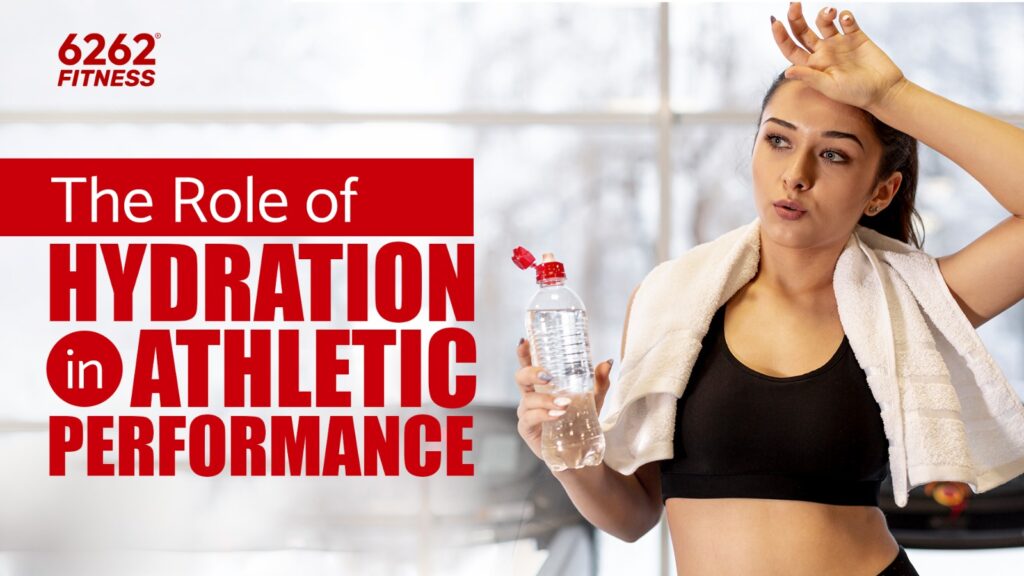The Role of Hydration is essential for everyone, but for athletes, it is even more important. Hydration plays a huge role in maintaining both physical and mental endurance during exercise. Without proper hydration, athletes can experience a drop in performance, tiredness, and even injury. To help athletes stay on top of their fitness goals, online Zoom classe and personal fitness training have become excellent resources. These sessions provide expert guidance on Role of Hydration strategies, personalized workout plans, and tips to maximize performance, all from the comfort of home.
Why Role of Hydration Matters for Athletes?
Hydration isn’t just about drinking water. It is about keeping the right balance of fluids in the body to help athletes perform their best. When athletes get dehydrated, it can lead to fatigue, muscle cramps, and even loss of focus. Athletes, like marathon runners, need to pay special attention to their role of Hydration , as they lose fluids quickly during long periods of exercise.
How Hydration Impacts Physical and Mental Performance?
When it comes to physical performance, water is important for carrying nutrients and oxygen to muscles, which helps them perform well. When athletes are hydrated, they can maintain endurance and strength. However, even mild dehydration can cause early exhaustion, reducing physical performance.
When it comes to mental performance, water has an impact on it too. When you are dehydrated, your focus and decision-making can suffer. For athletes in fast-paced sports, quick thinking and sharp concentration are essential, and being dehydrated makes that harder.
The Role of Water in the Body
Water helps the body in many important ways:
- Regulating body temperature: Water keeps you cool by helping your body sweat.
- Cushioning joints: Water protects your joints from injury by keeping them lubricated.
- Helping digestion: It helps break down food for energy and keeps your digestive system running smoothly.
During exercise, especially in hot weather, athletes lose water through sweat. This makes drinking enough water even more important for their bodies to keep functioning properly.
The Importance of Electrolytes
When athletes sweat, they don’t just lose water; they also lose electrolytes like sodium and potassium. These are essential for muscle function and nerve signaling. Sports drinks can help athletes replenish these electrolytes, especially during long periods of exercise. Without them, athletes can experience muscle cramps, fatigue, and a decrease in performance.
Hydration Strategies for Athletes
Understanding the role of hydration is important, but knowing how to hydrate effectively is crucial. Different sports, environments, and individual needs require personalized hydration strategies.
Pre-exercise hydration
The goal of pre-exercise role of Hydration is to start your workout or competition with an adequate amount of fluids in your body. This ensures that you won’t have to play catch-up during exercise, which can lead to performance drops.
Here are some pre-exercise tips:
- Hydrate Early: Make it a habit to drink water regularly throughout the day. About 2-3 hours before exercise, aim for 500–600 ml (17–20 oz) of water.
- Drink, Don’t Chug: Sipping water throughout the day is more effective than drinking a large amount in one go.
- Monitor Urine Color: A pale yellow color usually indicates proper role of Hydration, while dark urine suggests dehydration.
Hydration during exercise
The amount of fluid you need during exercise depends on several factors: the intensity of the activity, the duration, the environment, and how much you sweat. To avoid dehydration while exercising:
- Take Small, Regular Sips: Rather than gulping large amounts infrequently, try to sip water every 15-20 minutes.
- Use Electrolytes: For longer or more intense workouts, consider electrolyte-rich drinks. These help replace the sodium, potassium, and other minerals lost through sweat. Electrolytes are especially important for maintaining muscle function and preventing cramps.
- Adapt to Conditions: If you are exercising in hot or humid conditions, you will sweat more and lose fluids faster. Adjust your intake accordingly.
Post-exercise hydration
Post-exercise role of Hydration is just as important as the pre- and during phases. After a tough workout, your body needs to replace the fluids it lost and start the recovery process.
- Rehydrate Gradually: For every kilogram (2.2 lbs) of body weight lost during exercise, drink about 1.5 liters (50 oz) of water.
- Include Electrolytes: Replacing electrolytes lost during exercise is crucial, especially if you were sweating heavily or working out for an extended period.
- Eat Water-Rich Foods: Post-exercise recovery isn’t just about drinking. Foods like watermelon, cucumber, and oranges are high in water content and help with rehydration.
Signs of Dehydration
Recognizing dehydration early can help prevent performance drops. Here are some common signs:
- Dry mouth or excessive thirst
- Fatigue and headaches
- Dizziness or lack of focus
If dehydration becomes severe, athletes may experience rapid heartbeat, confusion, or even heat-related illnesses like heatstroke. It is essential to drink water as soon as early signs appear to prevent more serious issues.
Conclusion
Staying hydrated is a must for athletes to perform their best. Hydration supports both physical and mental performance, reduces the risk of injury, and helps with recovery.
Remember: role of Hydration is not a one-time event, but a continuous process that starts well before your workout and continues after. Make it a priority, and your body will thank you with enhanced performance, reduced fatigue, and quicker recovery.
